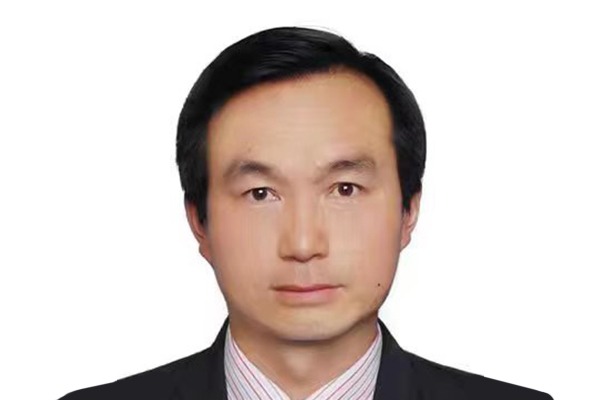Work-Wise
The young should pay more attention to long-term career development, as demands for professionals' skills have changed

The young should pay more attention to long-term career development, as demands for professionals' skills have changed

China's socioeconomic development shows new trends and sees problems. Its employment situation is complicated and challenging. While there are a large number of new graduates entering the labor force and registered unemployed ones, the vitality of enterprises remains to be restored, and companies are still conservative about increasing jobs.
The number of China's college graduates reached 10.76 million this year, a record high. Data released by the National Bureau of Statistics showed that the surveyed unemployment rate of people aged 16 to 24 reached 19.9 percent in July. As the COVID-19 outbreaks have reemerged, it has been difficult for college graduates to find jobs. The high unemployment rate of young people reflects the weaker-than-expected macroeconomic growth.
In the first half of this year, the economies of developed regions such as the Pearl River Delta and the Yangtze River Delta were greatly affected by the reemergence of the novel coronavirus. These regions used to have a large demand for workers and provided a strong driving force for the Chinese economy. However, because of the pandemic, some enterprises have had to lay off staff, which affects the employment of graduates.
The mismatch between the supply and demand of the labor force is still pronounced. The promotion of compulsory education and the expansion of college enrollment have laid a solid foundation for the rapid development of China's economy over the past few decades.
However, higher education reform still lags behind and make the majors, curriculum systems and education quality of colleges fail to meet the demands of economic development and the rapidly changing labor market.
While enterprises find it hard to recruit employees, job seekers also face challenges. College graduates are a high-quality labor force. Their underemployment or long-term unemployment will affect socioeconomic development. Long isolation from the labor market will affect the accumulation of human capital and the long-term career development of graduates.
College graduates are facing structural unemployment, caused by a mismatch between jobs and skills, or other long-term changes in the economy. China has seen accelerating economic transformation and industrial upgrading, further escalating the mismatch between the supply of college students and demand. Affected by uncertainties in the economic situation and the external environment, college graduates are more inclined to make conservative choices, such as seeking jobs in government bodies and public institutions, or pursuing postgraduate studies.
Over-concentration of employees in non-market sectors will affect the effective allocation of human capital and employment transformation. Pursuing higher education will lead to improving specialization of the labor force, while making it even harder to match professionals and jobs. Graduates may face greater risks of structural unemployment in the future.
Even if the external environment improves, the full recovery of enterprises will take time, which will affect employment. At present, the Chinese economy faces multiple pressures including demand contraction, a supply crunch and weakening expectations. Some industries with large employment demands, such as wholesale and retail, accommodation and catering, transportation and tourism industries, have seen slow recovery. As a result, they are still to resume recruitment.
Against the problems in the employment sector, the authorities need to integrate measures on launching macroeconomic policies, supporting employment, improving the top-level design of education and stabilizing market entities. Facing the demand for professionals' skills that is changing rapidly due to economic development, young people also need to pay attention to their own long-term career planning.
Macroeconomic policies — ranging from tax reduction and exemption and deferred payments in tax and fees, flexible regulation of social security payment amounts and deadlines, rent reduction and exemption for enterprises affected by the pandemic, to subsidies for wages — will be needed to boost employment.
Policy tools such as financial subsidies, tax relief, and deferred payment of social insurance premiums can be given full play to support small, medium and micro-sized enterprises and the self-employed, so as to expand recruitment.
Public resources should be utilized to support employment. One example is to expand recruitment in public sectors of education and scientific research, and explore jobs in fields matching the skills of college graduates. Related departments should also establish a service system for college students after their graduation, and provide services such as libraries, study rooms and employment guidance to create a stable and sound environment for graduates to adapt to the labor market or continue higher education.
A plan needs to be drawn up to target the demands of future socioeconomic development and address the structural contradiction in the employment market. As demands for skills change rapidly, it is necessary to improve the top-level design for higher education and even the entire education system, optimize training objectives and the enrollment ratios of colleges and vocational schools, coordinate general, professional and vocational education, and target future demands for skills in the labor market.
It is vital to boost the expectations and confidence of enterprises. Stable, detailed and specific policies and measures are better for driving economic activities than those that are constantly changed and adjusted. Efforts are needed to formulate guiding principles and detailed rules for pandemic prevention and control to help stabilize enterprises, which will improve the expectations and confidence of enterprises, boost economic recovery and accelerate the job creation of enterprises.
Besides, young people should focus on their whole career development and life-long learning. China's economic development mode has changed over the past decades, and the demand for innovation-oriented professionals will improve in future economic development. As demands for professionals' skills have changed, young people should pay more attention to acquiring the necessary skills for their long-term career development.
The author is a researcher at the Institute of Population and Labor Economics at the Chinese Academy of Social Sciences. The author contributed this article to China Watch, a think tank powered by China Daily.
Contact the editor at editor@chinawatch.cn









































